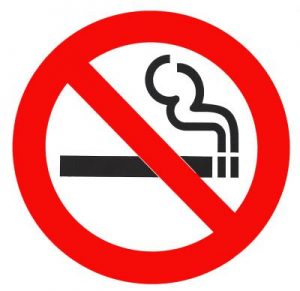Anti-Tobacco Activist Says E-Cigarettes Are a Good Alternative to Smoking
Doctor Derek Yach, senior vice-president of the Vitality Institute and a longtime anti-tobacco advocate recently stated that doctors should recommend electronic cigarettes as an effective smoking cessation tool.
 During a media lunch hosted by the Electronic Cigarette Association of South Africa, Yach told the audience that given the undisputed negative consequences tobacco smoking has on public health, any potential impact electronic cigarettes may have simply pale in comparison. “My concern, when tobacco is claiming 6 million lives a year, is the consequence of not using e-cigarettes,” said Yach, adding that doctors should recommend e-cigs to smokers looking to quit.
During a media lunch hosted by the Electronic Cigarette Association of South Africa, Yach told the audience that given the undisputed negative consequences tobacco smoking has on public health, any potential impact electronic cigarettes may have simply pale in comparison. “My concern, when tobacco is claiming 6 million lives a year, is the consequence of not using e-cigarettes,” said Yach, adding that doctors should recommend e-cigs to smokers looking to quit.
In an article published last month, Prof. Yach reviewed the “appalling statistics” of smoking. “There are about 1.3 billion smokers in the world and roughly six million smoking-related deaths every year,” he wrote. “In the United Kingdom alone, smoking causes 80,000 deaths. That’s 18% of all deaths. What’s more, for every death there are 20 smokers suffering from tobacco-related diseases, resulting in 450,000 hospital admissions each year. No other single cause of death and disease can so easily be prevented.” He believes electronic cigarettes could play a major role in rendering tobacco obsolete.
While Derek Yach is supportive of a tightened control of tobacco products, through anti-smoking campaigns and tax increases, he also emphasizes that a one-size-fits-all approach to tobacco control is doomed to fail. “The call for higher excise taxes ignores rising concerns about their regressive impact on poorer and more-addicted smokers,” he says. “It also ignores advances in the genetics of nicotine use, suggesting that half of all smokers may not respond to tax increases because of their need for nicotine.” It’s expected that current policies will reduce smoking in the United States from the current 20 per cent to 10 per cent by 2030, but that still leaves us with millions of smokers which simply do not respond to these tactics.
This is where innovative products like electronic cigarettes come into play. Nicotine and tar seem to be linked in public perception, and in that of some doctors, but many experts, including Derek Yach, believe it is important that the two be distinguished from each other. While nicotine is indeed a very addictive substance, it’s the tar that has the most serious impact on our health. Electronic cigarettes cater to their nicotine dependence without causing life-threatening damage, because they are tar-free.
During his speech in Cape Town, Prof. Yach also addressed the much talked-about concerns regarding e-cigarette use. The “gateway effect” (e-cigarettes acting as a gateway to tobacco for youth) argument is not very persuasive, according to the esteemed anti-tobacco advocate. Apart from statistics which show that as e-cigarette use is increasing in the US and UK, tobacco use continues to come down, there are also several studies that show e-cigarettes are not a gateway to smoking.
Regarding toxic substances, including carcinogens, found in e-cigarette vapor, Derek Yach cites reviewed toxicological, laboratory and clinical research on the potential risks of using e-cigarettes, which concluded that they are by far less harmful than smoking, and that “significant health benefits are expected in smokers who switch from tobacco to e-cigs”.
“I think we are at the stage where we have sufficient evidence to be comfortable that (for) a smoker who wants to quit or reduce their exposure to tobacco products… using an e-cigarette is a good choice,” Yach said.
The South African professor did express the need for moderate regulation of the vaping industry, to insure the quality of commercialized products and the safety of consumers, but cautioned against regulating the sale and use of electronic cigarettes too strictly, like only allowing the devices to be sold in pharmacies, thus making them less accessible compared to harmful tobacco cigarettes.
Talking about the war that mainstream media is waging on electronic cigarettes, Derek Yach offers a logical explanation: “One reason is that governments have become addicted to tobacco excise tax and may fear that, as e-cigs take off, they will lose a valuable source of revenue. Many leading NGOs and academics exert strong influence at WHO, within governments, in the media and among the general public. In the past, they helped bring tobacco control out of the shadows and into the mainstream of health policy. Now, alas, their intransigence threatens more profound progress.”
Another reason is the deep distrust in tobacco companies by public health experts. Big Tobacco has been found guilty of deliberately subverting the tobacco control efforts of the World Health Organization in the past, and now they are investing heavily in the e-cigarette business. The $3 billion electronic cigarette market, is already dominated by tobacco companies, either through proprietary products or acquisitions of independent brands. This development “has fueled suspicions that e-cigs are yet another ruse by the tobacco industry to continue making massive profits from addictive products that are harmful to health,” Yach says.
However, Prof. Yach believes that neither these suspicions nor the financial interests of governments should be used as the basis of e-cigarette regulation. Instead, sound scientific evidence provided by influential health officials should be considered as the main criteria.
Derek Yach is currently a senior vice-president of the Vitality Group,. In the past, has headed global health at the Rockefeller Foundation, was a Professor of Global Health at Yale University, and is a former Executive Director for Noncommunicable Diseases and Mental Health of the World Health Organization (WHO). During his years at WHO, he led the development of the Framework Convention on Tobacco Control and the Global Strategy on Diet and Physical Activity. Yach has also played a significant role in South Africa’s progressive anti-tobacco policies in the mid 1990s.
Photo credit: The Vitality Institute
Sources: Health24, The Spectator
















